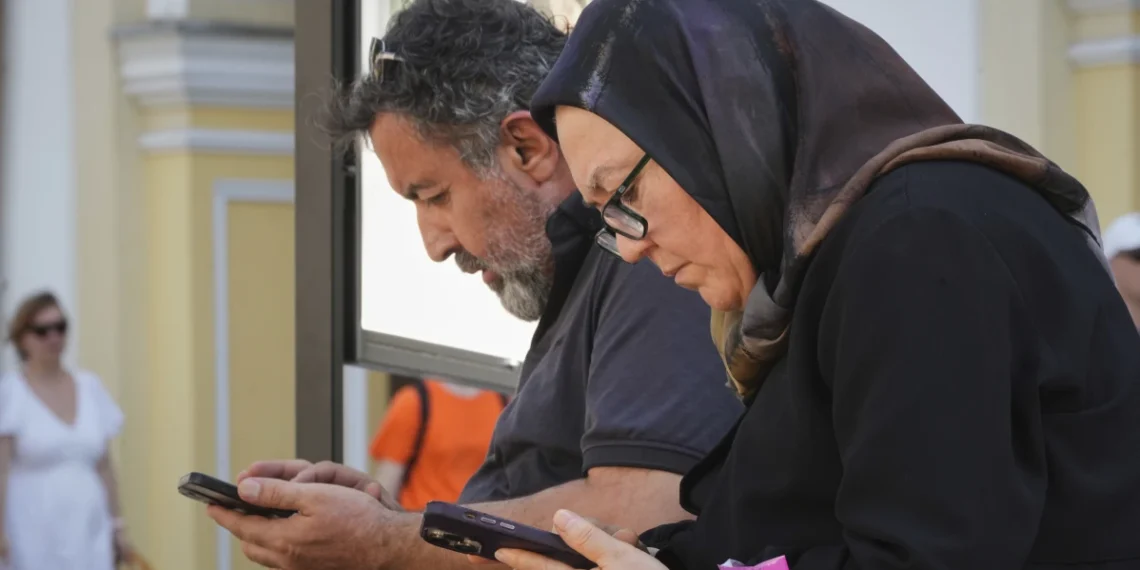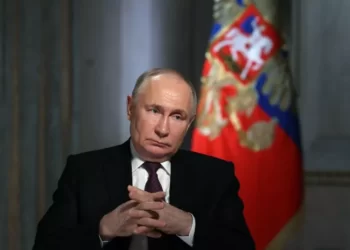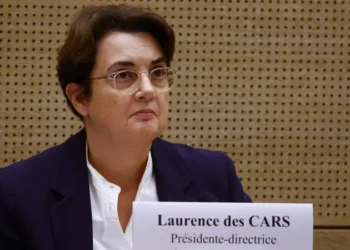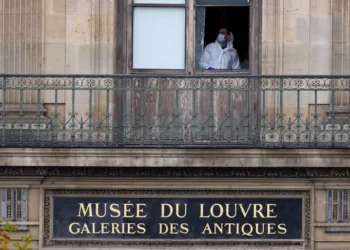In the last two months, cellphone internet shutdowns, have hit dozens of Russian regions — from those near the fighting to parts of Siberia and even the Far East. Some Wi-Fi outages also have been reported.
Russians from affected regions say the outages, which officials say are needed to foil Ukrainian drones, can last for hours or days. Patterns also are hard to discern, with service working in one part of a city but vanishing elsewhere.
In rural areas, small towns and villages, where cellphone internet often is the only way to get online, the situation was harder to gauge.
Experts point to the unprecedented nature of the measures and warn of far-reaching consequences in a country where the Kremlin already has significantly curtailed online freedom.
Anastasiya Zhyrmont, Policy Manager for Eastern Europe and Central Asia at the Access Now digital rights group, said that such shutdowns in the name of security legitimize them to the public and open the door for authorities abusing the restrictions.
Experts say the trend began in May, when Russia celebrated the 80th anniversary of the defeat of the Nazi Germany in World War II and foreign dignitaries flocked to Moscow for a big military parade.
The capital suffered severe disruptions of cellphone connectivity to the internet for days.
Kremlin Spokesman, Dmitry Peskov confirmed that those were deliberate restrictions due to regular Ukrainian drone attacks and added,“This will be done as needed.”
Russia has restricted smartphone connectivity before, with isolated instances during protests, as well as in regions bordering Ukraine.
According to lawyer Sarkis Darbinyan, Founder of Russian internet freedom group Roskomsvoboda, shutdowns in the capital, however, sent a signal to authorities across the vast country that it’s a useful tool.
He noted that Ukraine’s “Operation Spiderweb” in early June, in which drones launched from containers on trucks attacked airfields deep inside Russia, made officials all the more eager to take action.
By mid-July, deliberate shutdowns spread to most of the country, according to Na Svyazi — Russian for “staying connected” — an activist group tracking internet availability.
On Tuesday, the group reported cellphone internet shutdowns in 73 of over 80 regions. In 41 of them, there were reports of broadband network outages as well, while restrictions on broadband internet occurred in six regions, while cellphone connections were fine.
Some regional officials confirmed that cellphone internet was restricted for security reasons.
Nizhny Novgorod Governor, Gleb Nikitin said that this month the measure will stay in place in the region east of Moscow for “as long as the threat remains.”
Peskov Justifies Mass Shutdowns
Kremlin Spokesman, Dmitry Peskov justified such mass shutdowns, saying, “everything that has to do with ensuring the safety of citizens, everything is justified and everything is a priority.”
Authorities elsewhere also announced steps to minimize disruptions by opening Wi-Fi spots. They also are reportedly planning to establish an agency to coordinate the shutdowns, according to Izvestia, a Kremlin-backed newspaper that cited unidentified government sources. However, Peskov said that he was unaware of the plan.
Kateryna Stepanenko, a Russia Analyst at the Washington-based Institute for the Study of War, said that Russian and Ukrainian drones use cellphone internet networks to operate, so shutdowns are one way authorities try to counter the attacks.
The shutdowns are also part of the Kremlin’s long-term effort to rein in the internet.
Authorities have actively censored online content in the last decade, blocking thousands of websites of independent media, opposition groups and human rights organizations.
After Russia’s full-scale invasion of Ukraine in 2022, the government blocked major social media like Twitter, Facebook and Instagram, as well as encrypted messenger platform Signal and a few other messaging apps.
Access to YouTube — wildly popular in Russia — was disrupted last year in what experts called deliberate throttling by the authorities. The Kremlin blamed YouTube owner Google for not properly maintaining its hardware in Russia.
READ ALSO: Mahama, London Mayor Deepen Ghana-UK City Partnership























